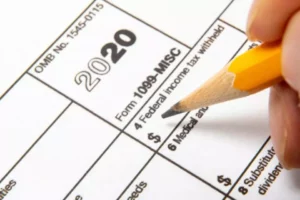Changes for the 2020 Tax Season That Can Affect Your 2019 Taxes
With the recent tax reform law, the way you will be doing taxes this year will slightly differ. So, what are some changes that came into effect in the year 2020 that can affect your taxes for the year 2019? Let’s review the major ones.
1.No Health Care Insurance Penalty
Prior to 2019, if you did not have health care, and you did not have an exemption, then you paid the penalty come tax time. Now, the individual mandate penalty has been removed. So, if you did not have health care insurance for 2019, you will not see a penalty when you file your taxes. This change will surely make many people happy, but it is not recommended to take advantage of it and put your health under risk.
2.No Alimony Deduction
One of the tax changes is a difference in the alimony deduction. Prior to divorces that were finalized on December 31, 2018, and before, alimony was deductible to the payor, and it was taxable to the receiver. Now, that is not the case for divorces that were finalized starting January 1, 2019, and beyond. Thus, if you pay alimony, it is not deductible. If you are receiving alimony, it is not taxable.
3.Higher Medical Expense Deduction Threshold
Prior to January 1st, 2019, with the medical expense deduction, you could deduct everything that exceeded 7.5% of your adjusted gross income. That number is now 10%. Actually, it was 10% before it was reduced to 7.5%. Now, it is back to 10%.
So, if you itemize all your taxes and you want to take a medical expense deduction, just know that it is only everything above 10% of your adjusted gross income. Let’s say your adjusted income is $50,000, and then your medical expenses need to be over $5,000 before you can deduct this expense. If you have $5,100 in qualified medical expenses, then you could claim $100 in medical expenses.
4.Higher Standard Deduction
The standard deduction for the 2020 filing for your 2019 taxes for married filing jointly is raised to $24,400 and half of that for married filing separately and single people. For the head of the household, it is $18,350. So, you will see higher standard deductions when you file your taxes for 2020.
5.Higher Tax Brackets
The tax brackets were increased in line with inflation. Inflation is basically when your money loses buying power. The prices of goods and services increase, which means that your money buys you less. Although you pay the same money, getting less for that. You will see it in the stores where you might not see a price change, but for example, you will be getting a 10-ounce can instead of a 12-ounce can.
Thus, the tax brackets increased, and the minimum tax bracket for this year is $9,700 or less for single people in the 10% marginal tax rate bracket. For married filing jointly – $0-$19,400 and for the head of household, it is $13,850. The top tax rate (in the 37% tax bracket) is for income that exceeds $510,300 for single people and head of household and over $612,350 for married filing jointly. Overall, you may see a reduction in your tax bracket because the income shifted higher.
6.Higher Retirement Account Contribution and HSA
The IRS limits for Retirement Account Contribution have gone up by $500 for contributors younger and older than 50 years of age. That means that if you are older than 50 years, you can contribute up to $7,000, and if you are younger than 50 years, up to $6,500. Health Savings Account limits are also going up, but not by much. Single taxpayers can contribute up to $3,500 and families up to $7,000.
7.Lifetime Estate and Gift Tax Exemption
An inheritance, the amount someone has when someone dies, that is not subject to tax, is getting is adjusted every year for inflation. In 2019, it was $11.4 million, and in 2020, it is $11.58 million. This is a big number and does not affect most Americans. When it does effect, there is a 40% estate tax on anything above the $11.58 million.
Everything That’s Staying the Same for the 2020 Tax Season
1.Charitable Donations Deduction
Tax reform did not eliminate the deduction for charity. If you made cash or property gifts/donations to qualified organizations, you could still deduct these donations from your income. This means that your taxable income and, consequently, the tax bill can be lowered. Individuals will need to itemize these deductions on Form 1040. The limits will vary up to 30% or 60% of AGI, depending on the organization you donate to.
2.Child Tax Credit
According to the 2018 tax reform law, individuals are eligible for a Child Tax Credit of up to $2,000 per qualifying dependent child (age of 16 years and younger on December 31, 2019) if their income does not exceed $200,000 for single and double that for married filing jointly. This means that you can pay less in taxes by as much as $2,000 for every child. If your tax bill is less than the Child Tax Credit, you can get a refund of up to $1,400 on anything that is left. So, if your tax bill was $750, you can get a refund equal to $1,250.
3.Mortgage and Home Equity Debt Deductions
The homeowners can still take advantage of the mortgage deductions. The maximum mortgage interest in a total principal of $750,000 in qualified mortgage loans can be deducted according to the tax reform law passed in 2018. However, individuals cannot deduct interest that they pay on home equity debt.
4.The 529 Plans
Although most families are unlikely to go over the 529 plan’s limit for the year, you should know that the limit for retirement savings is a deposit of up to $6,000 to an IRA or Roth IRA (if you are 50 years older, it is $7,000). For employer-sponsored 401K, this number is equal to $19,000. College funds qualify for a gift exemption. This means that each parent can give each child $15,000, and this money will qualify for an exemption. Other (non-529 plan) gifts are also included in this limit. If the total gifts by an individual exceed $15,000, they will be counted toward the lifetime estate and gift tax exemption.
2020 Tax Season Dates

Here are important dates for this tax season:
- You should start receiving your tax forms starting mid to late January.
- The IRS will begin accepting tax returns starting Tuesday, January 28th, 2020.
- The individual tax filing deadline day this year is Wednesday, April 15th, 2020.
- If you can’t file by April 15th, 2020, you can always file an extension which will extend the tax deadline to October 15th, 2020. However, you have to remember that you have to file that extension request before April 15th, 2020 (this date coincided with the tax filing deadline).

Get Your Taxes Done Right in 2020
Filing your tax return seems scary, but it doesn’t have to be. You already familiarized yourself with the tax changes you should be aware of to do your taxes right this year. Below are some tips that will help you to make the tax filing process as smooth as possible.
- Take advantage of Free File. The majority of people who are filing taxes can qualify for something called Free File. This is an IRS program with a software company. The software for filing is free if you get an income less than $69,000. This means that you might not need to pay for any tax services. An electronic form ensures fewer errors during filing.
- Do not procrastinate. When you receive tax forms, keep them in a safe place. Once you have received all of them, remember to file shortly thereafter. The refund timeline for e-file is usually less than 21 days. Individuals can check where their refund is at IRS.gov.
- Do not fall for scam artists who try to email, text or call you claiming that they are the IRS or the US Treasury. Remember, the IRS will only correspond with you via US mail.
- Do not refund shop. In other words, be weary of any tax preparers who claim they can get you a bigger refund. Make sure whoever prepares your taxes is either a CPA (Certified Public Accountant) or an EA (Enrolled Agent).
- Do not file too early. Many people believe that filing early is best and sometimes leave out valuable tax forms or income that should be reported. So, make sure you have received all your necessary tax forms like W2s, 1099s, brokerage statements, and mortgage interest statements before you submit your tax return for filing. If you file too early and leave out some vital tax forms or income, you will have to file again (an amended tax return). If you know you will receive some tax forms late or you will receive revised brokerage statements, remember to file an extension. Thus, don’t double the work and make sure you only file once you received all your tax forms.
- Use a tax pro. If you are unsure about your abilities to file taxes, then use the services of a tax pro. Professional tax preparers are aware of all the recent law changes and might apply tax deductions and tax credits you are not aware of. You might be able to save more than you will pay the tax expert.
- Do not use clean, round numbers. If you are taking deductions, do not give rounded numbers such as $1,000 phone expense, $2,000 supplies expense and $1,500 transportation expense because you are more likely to get audited.
- File separately or jointly? Married filing jointly is commonly the best decision. If you have large medical expenses or a debt repayment schedule based on your income (e.g. large student debts), consider doing taxes individually.

















